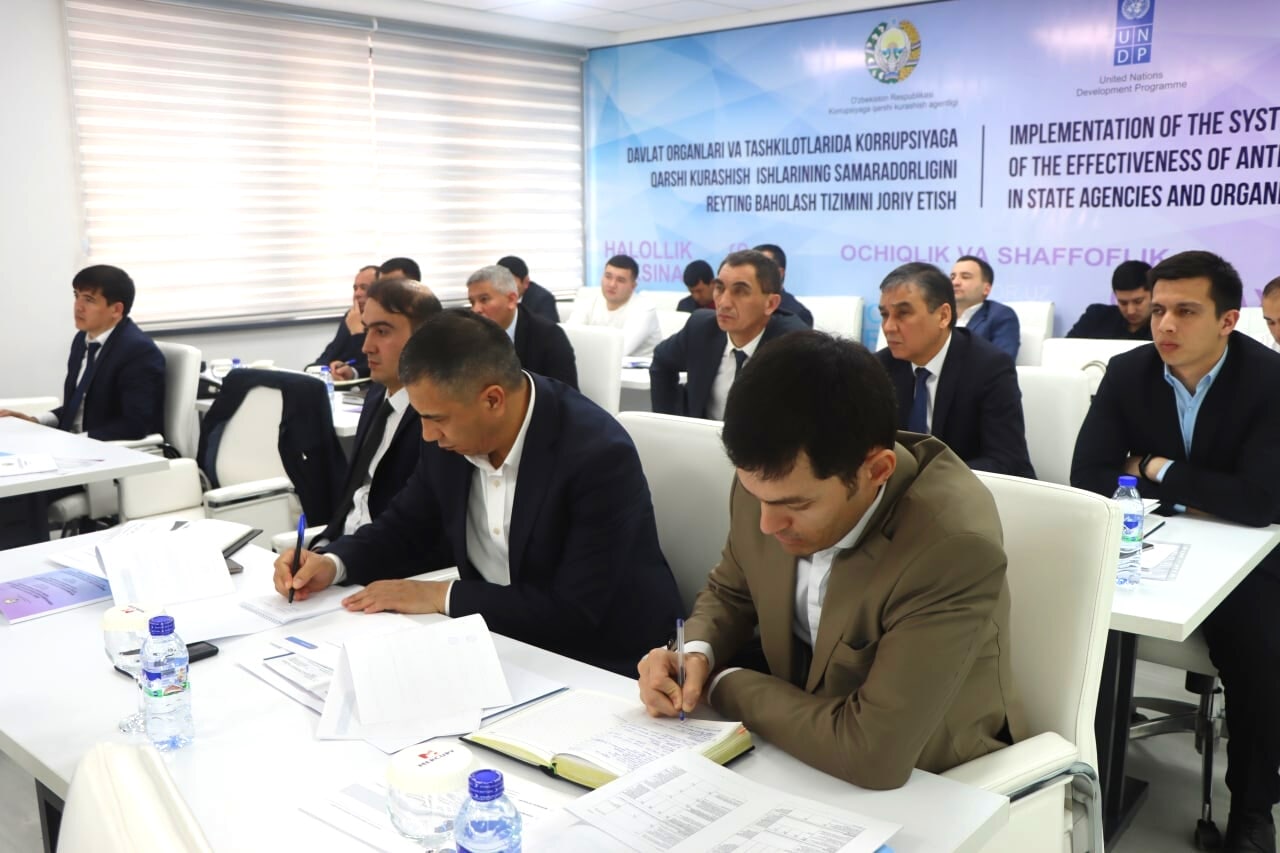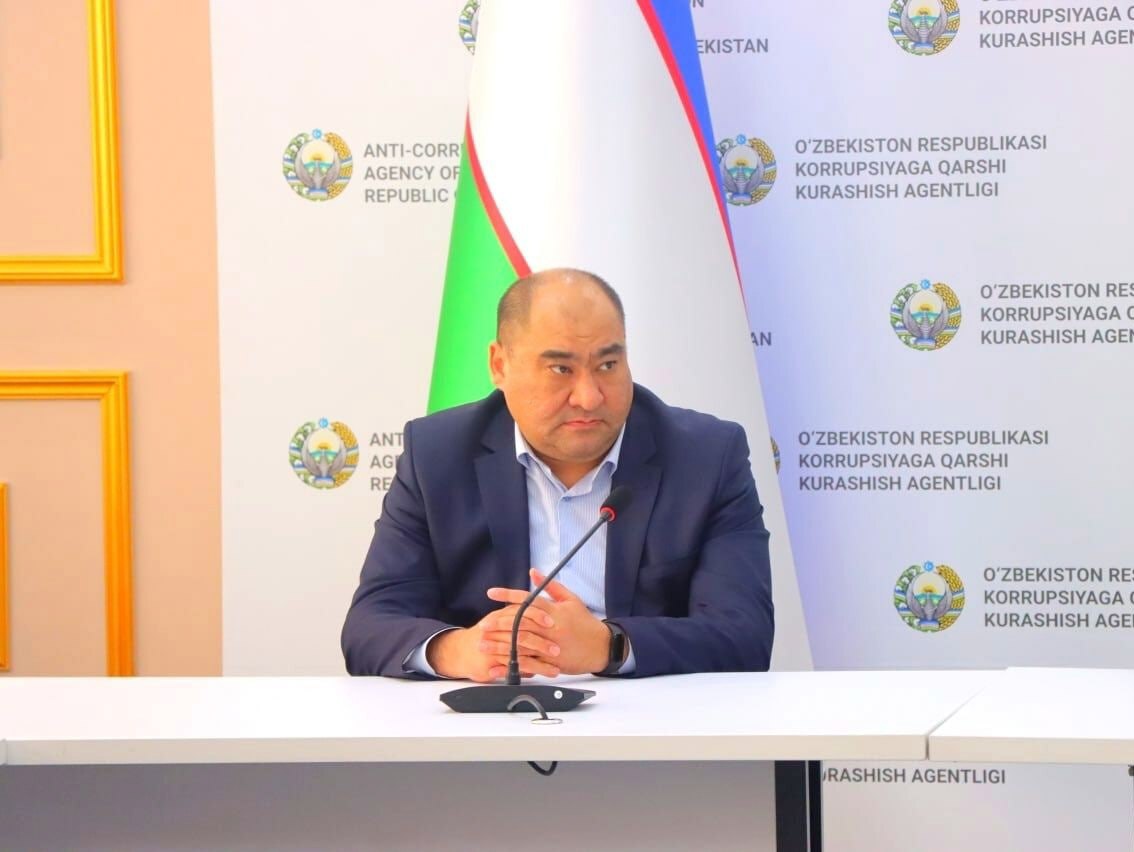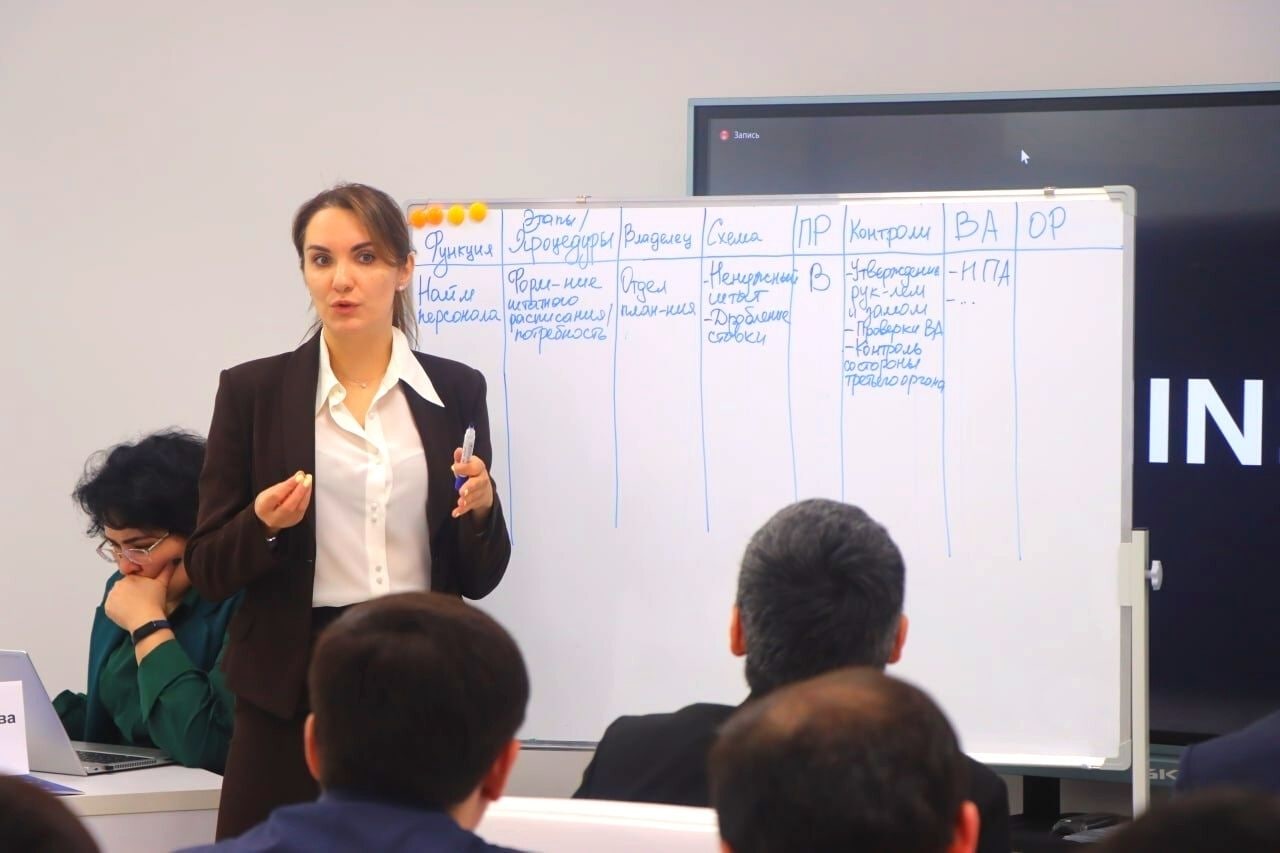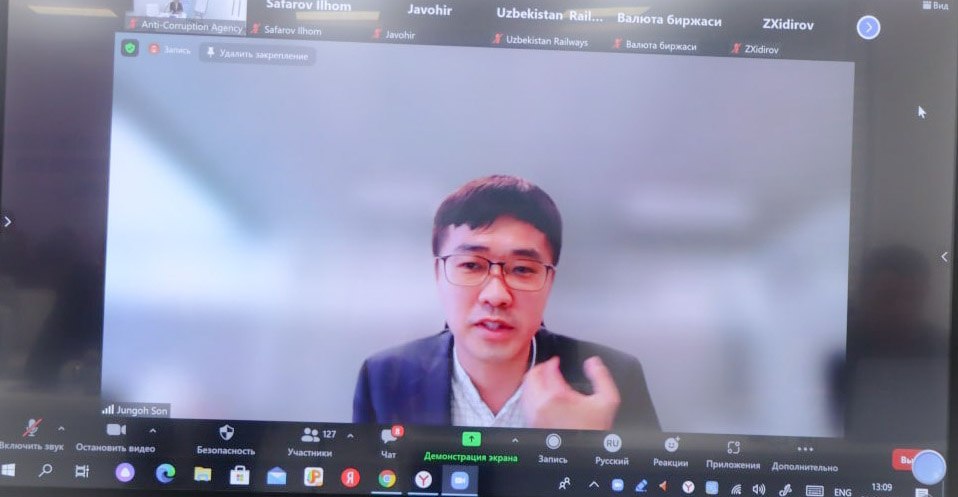A training seminar on the theme ‘Introduction of a rating system for assessing the effectiveness of anti-corruption work’, organized by the Anti-Corruption Agency together with the UN Development Program, wrapped up. The two-day event has become an active platform for specialists from more than 220 ministries and departments responsible for internal anti-corruption control to exchange experience and improve their skills.

The Anti-Corruption Agency is entrusted with the task of organizing the effective activities of the Internal Anti-Corruption Control Units in government agencies and organizations. And the main goal of this training seminar was to provide practical assistance in organizing the effective activities of these units.
Tal’atjon Haydarov, Deputy Director, the Anti-Corruption Agency:

“In 2021, 3,769 criminal cases of corruption against 5,483 people across the country were sent to the courts for consideration. Compared to 2020, the number of criminal cases sent to court increased by 2,621, and the number of persons prosecuted increased by 3,760, or 218 percent.
As a result of corruption crimes, the interests of the state and society in 2020 suffered material damage in the amount of 500 billion 102 million soums, and in 2021 the amount of material damage reached 1 trillion 282 billion soums. Compensation was provided.
Of course, these figures speak, first of all, about the increase in the efficiency of law enforcement agencies. But how many of these crimes could have been prevented? This issue should be considered by the employees of the Agency and representatives of anti-corruption control structures. Our main task is to prevent corruption crimes.
It is also important to ensure the inevitability of the responsibility of the perpetrator, but with the effective organization of work, improving the working conditions of employees and minimizing corruption risks, the above indicators will be significantly reduced.
If an anti-corruption system operates in every organization, if corruption is prevented, then, of course, these will be in the interests of the population first of all. This is our goal and our mission.”
Currently, 91 state organizations have established the Internal Anti-Corruption Control Units.
In order to provide methodological support to the departments, the Agency, with the support of UNDP experts and the KPMG International Audit Company, developed a package of documents and distributed it to all organizations. They include the anti-corruption policy, regulation on conflict of interest management, methodology for monitoring and controlling the effectiveness of anti-corruption measures, and others.
A recent study conducted by the Agency showed that the majority of government agencies have not fully adjusted the work of the Internal Anti-Corruption Control Units.
The experts of the UNDP project and KPMG, who took part in the training seminar, in their reports highlighted the issues of overcoming the shortcomings identified as a result of studies conducted by the Agency, and the proper organization of the work of units.
Irina Burdikova, expert, KPMG International Audit Company:

“During the training seminar, we managed to establish an active dialogue with the participants. There were many comments on the topic, many questions were asked, practical solutions were also offered to some issues, which is really valuable. Therefore, I can say that the training seminar went effective in all respects.
During my presentations, I paid special attention to practical issues: how to effectively implement internal documents and procedures that are actively implemented in government agencies, how compliance systems implemented in government agencies and organizations differ, what to pay attention to in this system.
In your country, the introduction of a compliance control system has recently been launched, so the participants are more interested in practice and experience. For example, what compliance control tools are used worldwide, what approach is needed for their effective implementation in Uzbekistan.
I hope that each participant has received the necessary knowledge, which he or she will begin to implement in their practice immediately after the seminar, and soon we will get the first results.”
Another important issue of the training seminar was the introduction of a rating system for assessing the effectiveness of anti-corruption work.
In accordance with the Resolution of the President of the Republic of Uzbekistan dated January 12, 2022 No. RP-81 “On measures to introduce a rating system for assessing the effectiveness of anti-corruption work”, the introduction of a rating system for assessing the effectiveness of anti-corruption work has begun.
It is noteworthy that the rating assessment is organized by the Agency through the electronic platform E-Anticor.uz.
The electronic platform was developed in cooperation with UNDP in Uzbekistan with technical and advisory support from the UNDP Seoul Policy Center and the Anti-Corruption and Civil Rights Commission of the Republic of Korea.
The seminar was also attended by the consultant of the center Jungo Sonny, who provided detailed information on the system for evaluating anti-corruption initiatives in the Republic of Korea.
Jungoh Son, consultant, Seoul Policy Center, Republic of Korea:

“In 2002, the Republic of Korea established the main anti-corruption instruments - the Anti-Corruption and Civil Rights Commission, as well as the Anti-Corruption Initiative Assessment.
Now the system for assessing anti-corruption initiatives covers more than 250 government agencies. This system combines quantitative and qualitative assessment with a scoring system and allows assessing the implementation by participating organizations of the recommendations of the the Anti-Corruption and Civil Rights Commission on the implementation of various institutional mechanisms for the prevention of corruption.
Each year, all scores are publicly announced and a rating of organizations is compiled.
Thus, this system will become a tool to motivate the heads of government agencies to introduce and improve institutional measures to prevent corruption. In this sense, the anti-corruption performance rating system introduced in Uzbekistan is of particular importance in ensuring transparency and accountability of government agencies and organizations to the public, as well as strengthening responsibility in the fight against corruption.”
During the training seminar, the participants got familiarized in detail with the procedure for working on the electronic platform E-Anticor.uz. For the convenience of users, the Agency has prepared a special manual and a video on this topic, which are posted on the electronic platform. At the end of the event, all participants were given certificates of participation.
Press Office,
The Anti-Corruption Agency







